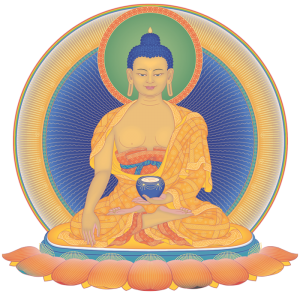ABOUT BUDDHISM

The founder of Buddhism in this world was Buddha Shakyamuni who lived and taught in India some two and a half thousand years ago.
Since then, millions of people around the world have followed the pure spiritual path he revealed. The Buddhist way of life—of peace, loving kindness, and wisdom—is just as relevant today as it was in ancient India.
Buddha explained that all our problems and suffering arise from confused and negative states of mind, and that all our happiness and good fortune arise from peaceful and positive states of mind. He taught methods for gradually overcoming our negative minds such as anger, jealousy, and ignorance, and developing our positive minds such as love, compassion, and wisdom. Through this we will come to experience lasting peace and happiness.
These methods work for anyone, in any country, at any age. Once we have gained experience of them for ourselves, we can pass them on to others so they too can enjoy the same benefits.
What is Meditation?

Meditation is at the heart of the Buddhist way of life—the perfect method for understanding and working on our own mind. Throh meditation we first learn to identify our different negative mental states known as “delusions”, and then learn how to develop peaceful and positive mental states or “virtuous minds”.
ug In our daily lives we strive to practice and maintain these virtuous minds and use our wisdom to solve our problems. As our mind becomes more positive, our actions become more constructive and our experience of life becomes more satisfying and beneficial to others.
Anyone can learn basic meditation techniques and experience great benefits, but to progress beyond basic meditation along the Buddhist path to enlightenment we need to develop faith in the Three Jewels—Buddha, Dharma, and Sangha. This kind of faith naturally arises as we experience the benefits of meditation practice and personally verify that Dharma is changing our lives for the better.
What is a Spiritual Path?
The teachings of Buddha reveal a step by step path to lasting happiness. By following this path, anyone can gradually transform his or her mind from its present confused and self-centered state into the blissful mind of a Buddha.
As Geshe Kelsang Gyatso says in his popular book, Eight Steps to Happiness:
“Every living being has the potential to become a Buddha, someone who has completely purified his or her mind of all faults and limitations and has brought all good qualities to perfection. Our mind is like a cloudy sky, in essence clear and pure but overcast by the clouds of delusions. Just as the thickest clouds eventually disperse, so too even the heaviest delusions can be removed from our mind. Delusions such as hatred, greed, and ignorance are not intrinsic parts of the mind. If we apply the appropriate methods they can be completely eliminated, and we shall experience the supreme happiness of full enlightenment.”
Having attained enlightenment, we shall have all the necessary qualities—universal love and compassion, omniscient wisdom and boundless spiritual power—to lead all living beings to the same exalted state. This is the ultimate aim of Mahayana Buddhism.
To find out more about Buddhism, read Introduction to Buddhism by Geshe Kelsang Gyatso.
What is Modern Buddhism?
With the fast pace and high stress of modern life, many people are becoming interested in the peaceful philosophy of Buddhism. In particular, there is a very deep interest in learning how to meditate both to overcome stress and anxiety, and to deepen one’s spiritual experience. In response to this growing interest, Kadampa Buddhism offers many different ways of learning about Buddhism and practicing meditation. Kadampa Buddhism was first introduced to the West in 1976 by the renowned Kadampa Buddhist Master, Venerable Geshe Kelsang Gyatso.
Since then Geshe Kelsang has worked tirelessly to provide all the conditions necessary to support contemporary practitioners. He has written over twenty books on Buddhism that are now being translated into many different languages.
Geshe Kelsang has also established a worldwide network of over 1000 Kadampa Buddhist centers in over 36 countries around the world where people of all cultures can train in meditation and other Buddhist practices.
Each center has qualified local teachers and offers introductory classes, structured study programs, and meditation retreats. All Kadampa Buddhist Centers are open to the public.
